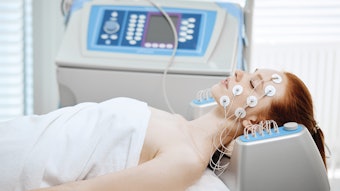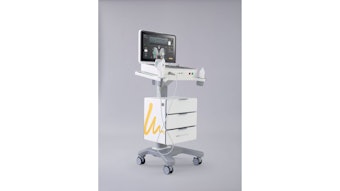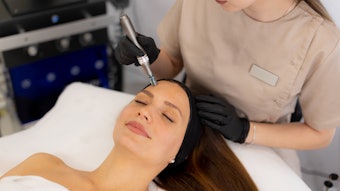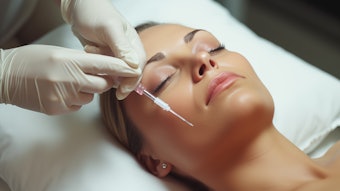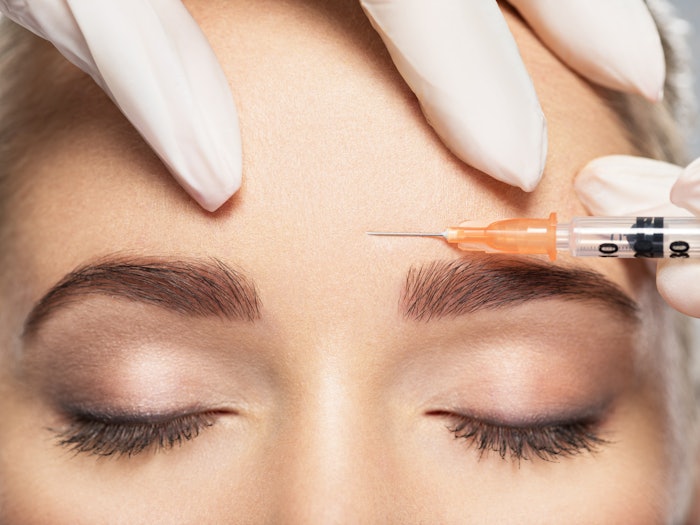
It's not cheap to keep up with pricey media-marketed beauty trends, but when is the right price beyond wrong? The demand for beauty enhancements has led to more non-medics practicing under the guise of competency to advance their businesses, and a larger pool of clients can upgrade their faces at bargain prices. This ethical dilemma in the beauty business has created consequences, including an influx in cases of permanently disfigured women who require surgery to rectify the defective work—and worse. When clients defer to our profession for a recommendation, share the right information.
Fatal Consequences
Last year, a mother of five died hours after having a liquid Brazilian Butt Lift procedure at her local spa by non-medic injectors. While she was the first to die in the U.K. from a BBL, this is no isolated incident. BBLs can cause a pulmonary embolism, which can be fatal, making it the most dangerous cosmetic procedure. Because there is no surgery involved in a liquid BBL, more unqualified people are attempting it, significantly increasing the risk of complication and fatality. Non-lethal risks of receiving any cosmetic procedures or injectables by non-medics include abscesses, necrosis of the skin, disfigurement, infectious disease and various health issues that may be permanent and life-altering.
Botched Destinations
Dangers lurk in the allure of medical tourism, a coined trend for people traveling to foreign countries for a bargain-priced enhancement. Providers may perform procedures following sub-standard regulations or simply bank on scamming tourists. For example, recent incidences of sophisticated forgery have been uncovered at many Turkish facilities, with providers possessing fake accreditations and diplomas, exaggerated qualifications, and advertised outdated, unsafe, and below-standard equipment as state-of-the-art. With elaborately embellished claims, these truths would be challenging for the typical patient to uncover, significantly endangering them and breaching ethical standards.
The Rise of Botox Parties
On the contrary, you may get invited to a "Botox party" down the street. Injections administered in a non-clinical setting pose a greater risk for compromised infection control and can lead to complications. Additionally, if the price is good to be true, the product may not be legitimate. The risks involved with unsupervised and unqualified injectors include severe damage such as paralysis or complications that could be life-threatening. Emergency medical intervention would not be available to you in this setting, especially if the provider is not knowledgeable or trained in these scenarios.
Verifying Products
A formidable risk is that non-medics may offer fraudulent products with toxic or expired material instead of prescription-required FDA-approved injectables. Currently, the dangers of counterfeit or mishandled products exist everywhere. Counterfeit filler can have hazardous ingredients, like flat-tire sealant and superglue, as was the case of one woman in Florida ten years ago. As of mid-2024, 17 people across nine states in the U.S. experienced botulism, a rare and sometimes fatal illness, following injections with fake Botox, "Botox" from unverified sources, or from providers who did not follow state requirements.
It is essential to ask questions about the authenticity of a product and if the provider is buying directly from FDA-approved manufacturers versus online or an unknown third party. When legitimate, providers can verify the source of their well-packaged brand-name products via lot and batch numbers.
Call it What You Want, but Don't Call it Certified
Registered Nurse and certified injector Alicia Ventrillo knows that cosmetic procedures have gotten a bad rep due to poor outcomes resulting from unqualified non-medics. "Patients should never have to question who is providing their treatments and whether they are legally able and trained to do so. It should be a certainty. A non-licensed person does not possess the skill set, knowledge, or know-how to hold a syringe."
It is not within the scope of practice for certain professions to administer cosmetic injections without a medical background. The term "medical esthetician" is an example of a self-attributed title that does not reflect the legal scope of practice. Many attribute self-designated titles to highlight specialties, but they are not distinctions granted to an individual. Always take the time to verify an injector's actual qualifications and experience. A non-medic can add a misleading descriptor like "advanced" to their title after a two-day course given by another non-medic.
Verifying Providers
Laws differ in every state and country, so diligence is required in researching who's qualified in your area. Professionals who may fit the standards to administer cosmetic injections first possess licenses such as cosmetic and plastic surgeons, board-certified physicians, physician assistants, dermatologists, nurse practitioners, registered nurses, dentists and registered dental hygienists. Some of these providers would require physician oversight. Furthermore, the extent of training in administering injections may vary. To verify a provider, look up board-certified qualifications that prove that your injector has completed the proper training and passed the necessary examinations to be deemed competent and qualified. Never risk your face or reputation by seeing, working with, or having "training" by an unqualified non-medic; it may scar you—literally and professionally.

